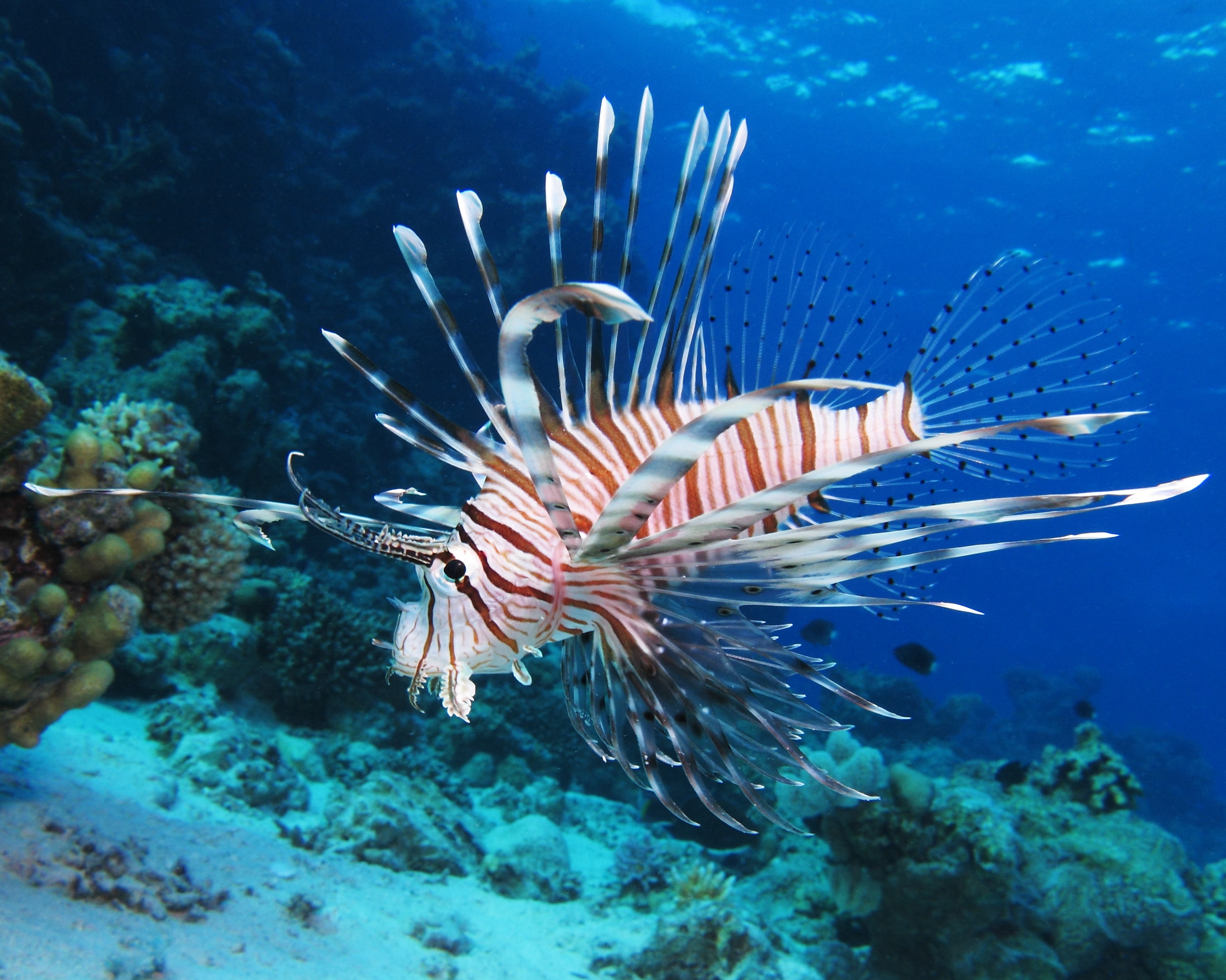We reach more than 65,000 registered users in Dec!! Register Now

"Terminator" fish worries scientists
- August 15, 2014
- 930 Views
- 0 Likes
- 0 Comment
A fish that's invading the Atlantic Ocean hunts more like the "terminator" of movie fame than like an ordinary predator, worried scientists say. The red lionfish can hunt species to extinction locally, according to researchers-unlike more common predators, which find it easier to leave prey alone and move on after prey ...
A fish that's invading the Atlantic Ocean hunts more like the “terminator” of movie fame than like an ordinary predator, worried scientists say.
The red lionfish can hunt species to extinction locally, according to researchers-unlike more common predators, which find it easier to leave prey alone and move on after prey populations have been reduced.
Findings described as “alarming” about the red lionfish, which came from the Pacific Ocean, were presented Aug. 14 at the annual meeting of the Ecological Society of America in Sacramento.
Scientists say the fish's Atlantic invasion, believed to have begun in the 1980s, now covers an area larger than the whole United States, decimating native fish in parts of the Caribbean and elsewhere. The poisonous lionfish spines can injure people as well.
Most native predatory fish are attracted to prey when their numbers are high-that's when successful attacks are easy, according to previous research by fish ecologist Michael Webster. As the prey population falls, the native predators often move on to areas where, literally, the fishing is better. This process tends to stabilize prey populations: they shrink when they get too large and grow when they get too small.
The new research found that lionfish, by comparison, seem to stay in one area even as the numbers of prey drop, and in some cases can eat a population to local extinction. They have unique characteristics that make this possible, and like the terminator, they just will not stop.
They “seem to be the ultimate invader,” said Kurt Ingeman, a doctoral candidate in at Oregon State University who presented the findings, building on previous work by his advisor Mark Hixon and fellow graduate students. “Almost every new thing we learn about them is some characteristic that makes them a more formidable predator. And it's now clear they will hunt successfully even when only a few fish are present. This behavior is unusual and alarming.”
Ingeman conducted the research on replicated natural reefs in the Bahamas, measuring the mortality rates of a common lionfish prey, the fairy basslet-a popular aquarium fish. A range of scenarios was set up for examination: reefs with the invasive lionfish, reefs with native predators alone, and various population levels of fairy basslet. Ingeman found that when prey fish were sparse, the mortality with lionfish present was four times higher than that caused by native predators alone.
“Reef fish usually hide in rocks and crevices for protection, and with high populations, there is a scramble for shelter,” Ingeman said. “Native predators take advantage of this situation by mostly eating when and where prey are abundant.” In other words, the predators have an easier time when there's simply not enough shelter to hide their prey.
Lionfish, however, have such advantages as an invasive species that they apparently feel no need to move on for better or easier hunting, Ingeman said. Other fish may not recognize them as a predator. Lionfish are also very efficient hunters, are well defended themselves by poisonous spines, can thrive in deep waters, tolerate a wide range of conditions, reproduce quickly most of the year and aren't picky eaters. Hixon and fellow graduate students have found that lionfish can wipe out over 90 percent of more of the native fish in some hard-hit areas.
Evolutionary pressures may eventually allow native fish to adapt and defend themselves, Ingeman said, but when and how is unclear. “We know that fish can learn and change their behavior, sometimes over just a few generations. But we don't have any studies yet to demonstrate this is taking place with native fish populations in the Atlantic.”
Source : http://www.world-science.net









